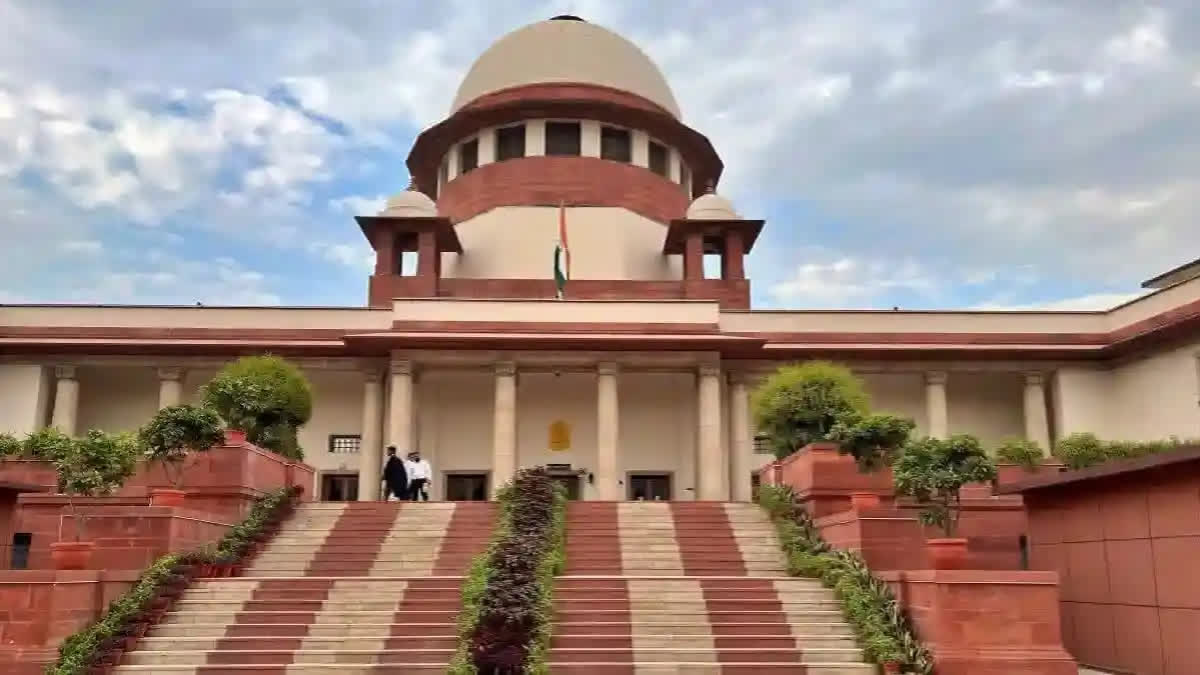New Delhi: The Supreme Court Monday agreed to examine if all border states have to be treated alike while demarcating the area of jurisdiction of the Border Security Force (BSF).
A three-judge bench led by Chief Justice of India D.Y. Chandrachud decided to hear the matter in the third week of April. The apex court was hearing the suit filed by Punjab accusing the Centre of virtually taking the powers of its police.
Punjab moved the apex court against the Centre for extending BSF’s jurisdiction from 15 km to 50 km from the Indo-Pakistan border. The apex court said it would determine whether the Centre had encroached into the legislative domain of Punjab.
In December last year, the Supreme Court had orally remarked Punjab Police’s power has not been taken away by the decision of the central government to expand the BSF’s (Border Security Force) jurisdiction to undertake search, seizure, and arrest within a larger 50-km stretch from the International Border as compared to the earlier 15 km limit.
The apex court, after examining the records, had observed that there were concurrent powers to be exercised by the BSF and the state police. The CJI had observed that the power of investigation is not taken away from the Punjab Police.
The apex court had asked Solicitor General Tushar Mehta, representing the Centre, and advocate Shadan Farasat, representing the Punjab government, to sit together and jointly decide on issues to be decided by the bench. The bench said that the parties should exchange issues so that they can be settled before the next date of listing and the advocate general of Punjab can also take part in this meeting.
During the hearing, Mehta had said the BSF has jurisdiction in all border states and in Gujarat, the jurisdiction of the BSF was up to 80 km. Mehta stressed that now the jurisdiction is uniform 50 km in all border states, and added that BSF has jurisdiction over some passport offences and the local police will also have power. Farasat said Punjab is a small state and the Centre’s decision takes away the power of the police and other agencies.
Referring to a notification connected with the matter, Mehta said it does not include all the cognisable offences and cognisable offences are those serious cases in which a police officer can arrest the suspect without any warrant.
The apex court was hearing the 2021 lawsuit of the Punjab government challenging the Centre’s decision that expanded the BSF’s jurisdiction to undertake search, seizure and arrest within a larger 50-km stretch from the international border in Assam, West Bengal and Punjab, as compared to the earlier 15 km. The state government, in its original suit, said the extension of the territorial jurisdiction of the BSF encroaches upon the constitutional jurisdiction of the state.
The Union home ministry issued a notification amending a July 2014 enabling provision for the BSF personnel and officers while they operate in the border areas. While in Punjab, West Bengal and Assam, the BSF jurisdiction was enhanced from 15 km to 50 km, in Gujarat, which shares its borders with Pakistan, the limit was reduced from 80 km to 50 km, while in Rajasthan, it was kept unchanged at 50 km.
Read More



